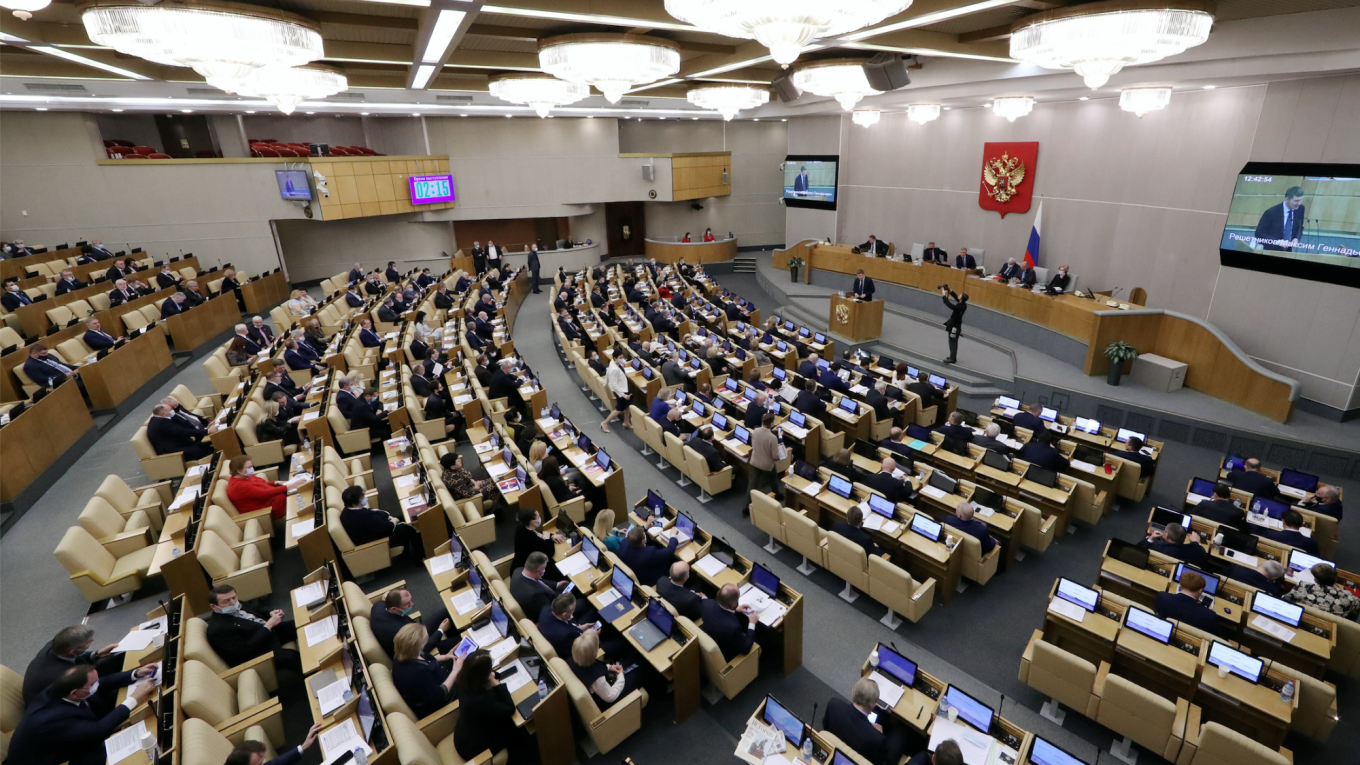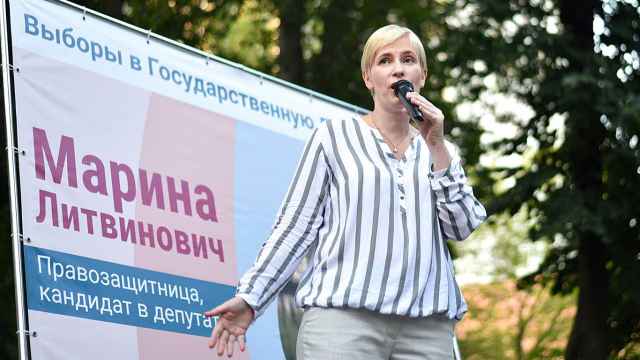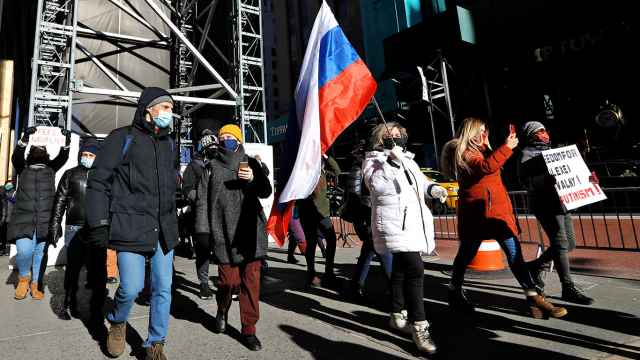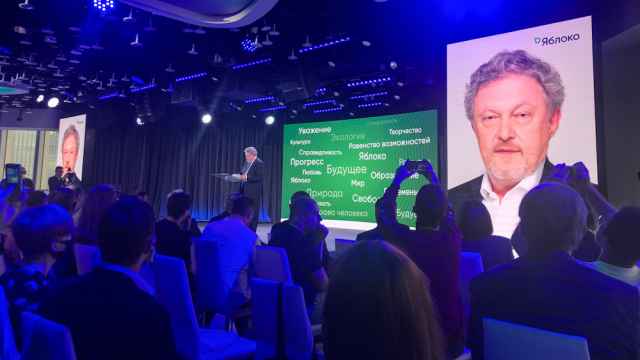Russian lawmakers have proposed banning people linked to terrorist or extremist organizations from running for office ahead of a landmark ruling to outlaw jailed Kremlin critic Alexei Navalny’s political and activist groups.
The changes to Russia’s election law, submitted in the lower-house State Duma on Tuesday, come days ahead of a highly anticipated Moscow court decision to brand Navalny’s nationwide network of some 50 regional offices and his Anti-Corruption Foundation (FBK) — both peaceful political movements — as “extremist” organizations.
If passed, anyone in the extremist group’s hierarchy — including financial donors — who played any role in the organization one to three years prior to the court ruling would be banned from running for office.
Heads of outlawed organizations would not be allowed to run for the State Duma for five years while employees would face three-year bans, according to the draft bill.
“We’ve seen a lot of ‘laws against Navalny,’ but this is something new,” Navalny’s senior aide Leonid Volkov tweeted.
“If you donated to the FBK over the past year — you can’t run for the State Duma. If you worked as a coordinator at Navalny’s headquarters over the last three years — you can’t run for the State Duma,” he wrote.
Volkov has said that the “extremism” court ruling will not affect the team’s “Smart Voting” strategy that seeks to unseat pro-Putin ruling party incumbents in this fall's key parliamentary elections.
The draft bill’s eight co-authors represent both the ruling United Russia party and all three of the State Duma’s opposition parties.
To become law, their legislative initiative would need three votes of approval in the State Duma and one in the upper-house Federation Council before receiving President Vladimir Putin’s signature.
If passed, the ban would directly affect several Navalny allies who have announced plans to run for the Duma, including his senior aide and FBK lawyer Lyubov Sobol.
Ahead of the court ruling, Moscow prosecutors suspended the Navalny network’s activities and Russia’s state financial watchdog froze its bank accounts. Meanwhile, Volkov announced the network’s dissolution to protect employees from the prison time that they’d risk as members of “extremist” organizations.
A Message from The Moscow Times:
Dear readers,
We are facing unprecedented challenges. Russia's Prosecutor General's Office has designated The Moscow Times as an "undesirable" organization, criminalizing our work and putting our staff at risk of prosecution. This follows our earlier unjust labeling as a "foreign agent."
These actions are direct attempts to silence independent journalism in Russia. The authorities claim our work "discredits the decisions of the Russian leadership." We see things differently: we strive to provide accurate, unbiased reporting on Russia.
We, the journalists of The Moscow Times, refuse to be silenced. But to continue our work, we need your help.
Your support, no matter how small, makes a world of difference. If you can, please support us monthly starting from just $2. It's quick to set up, and every contribution makes a significant impact.
By supporting The Moscow Times, you're defending open, independent journalism in the face of repression. Thank you for standing with us.
Remind me later.






